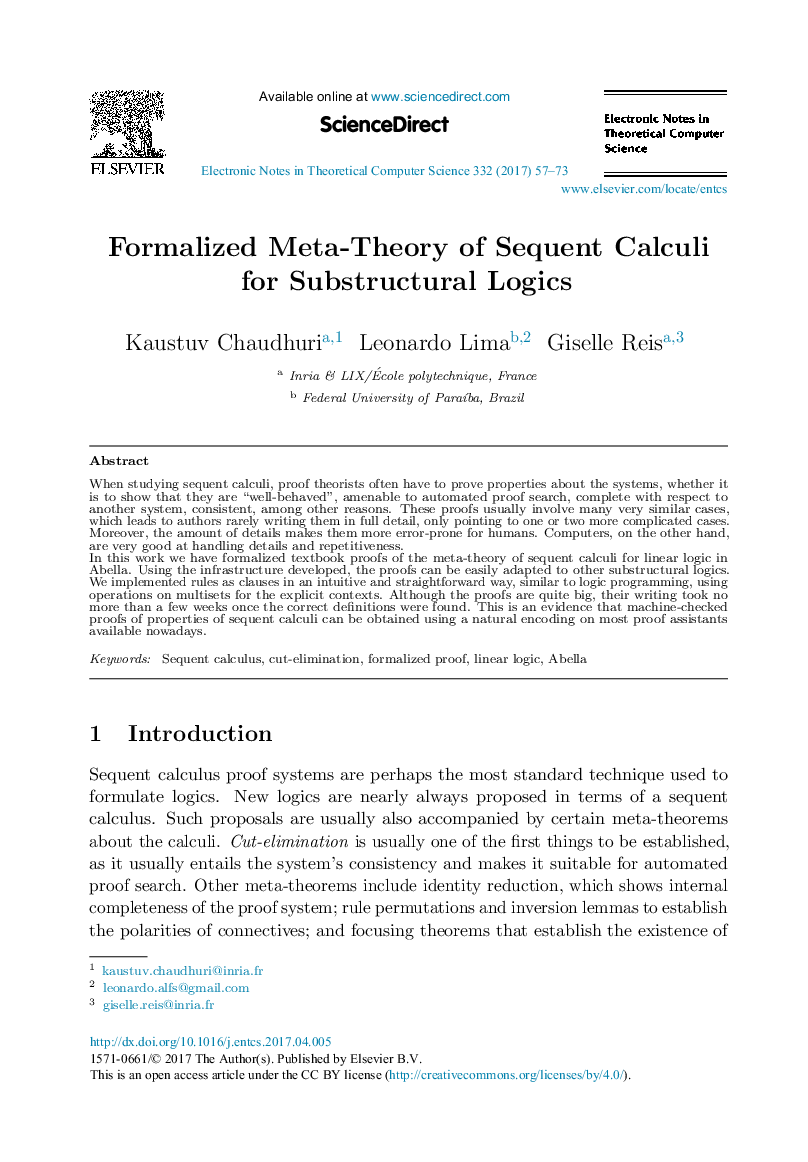| Article ID | Journal | Published Year | Pages | File Type |
|---|---|---|---|---|
| 4950014 | Electronic Notes in Theoretical Computer Science | 2017 | 17 Pages |
When studying sequent calculi, proof theorists often have to prove properties about the systems, whether it is to show that they are “well-behaved”, amenable to automated proof search, complete with respect to another system, consistent, among other reasons. These proofs usually involve many very similar cases, which leads to authors rarely writing them in full detail, only pointing to one or two more complicated cases. Moreover, the amount of details makes them more error-prone for humans. Computers, on the other hand, are very good at handling details and repetitiveness.In this work we have formalized textbook proofs of the meta-theory of sequent calculi for linear logic in Abella. Using the infrastructure developed, the proofs can be easily adapted to other substructural logics. We implemented rules as clauses in an intuitive and straightforward way, similar to logic programming, using operations on multisets for the explicit contexts. Although the proofs are quite big, their writing took no more than a few weeks once the correct definitions were found. This is an evidence that machine-checked proofs of properties of sequent calculi can be obtained using a natural encoding on most proof assistants available nowadays.
